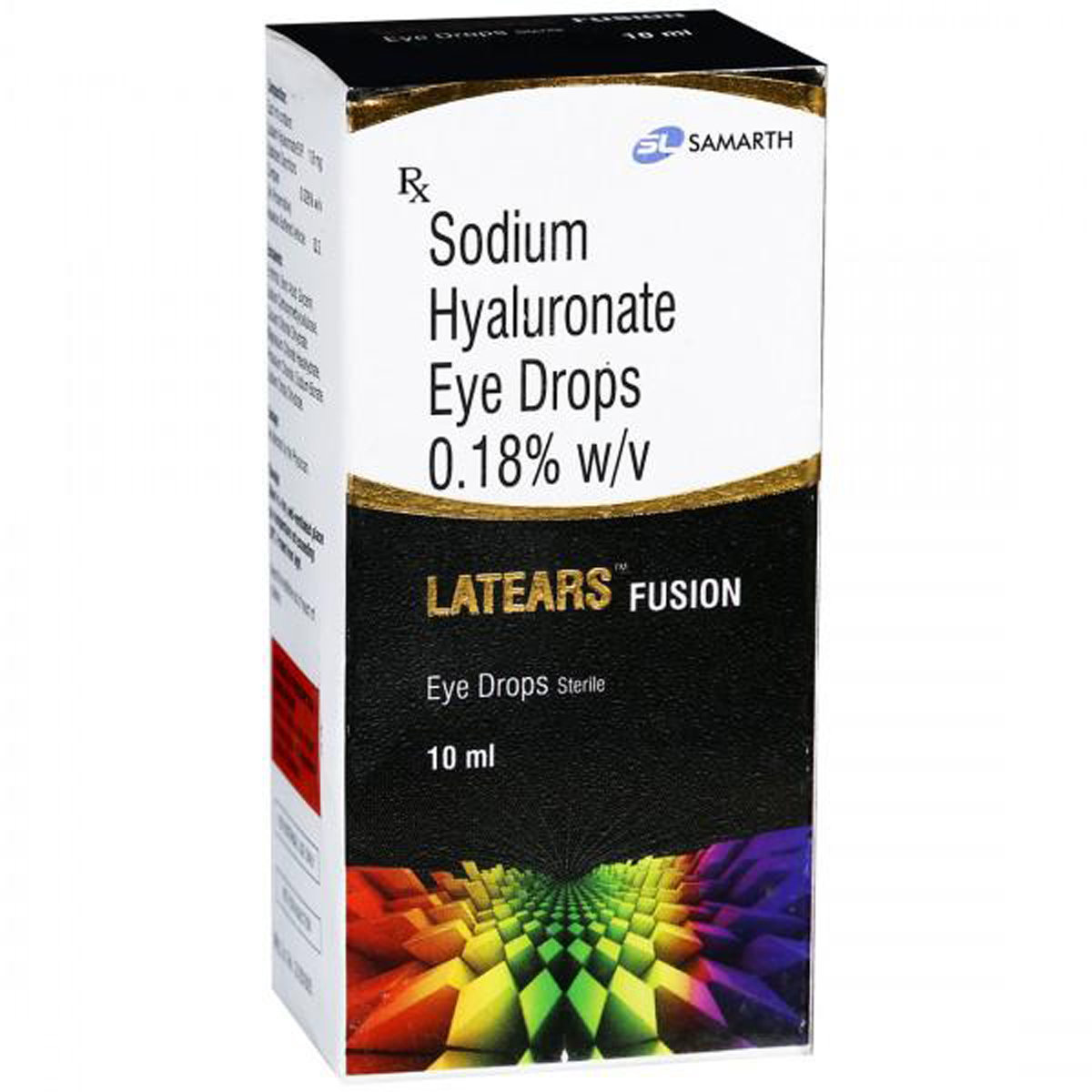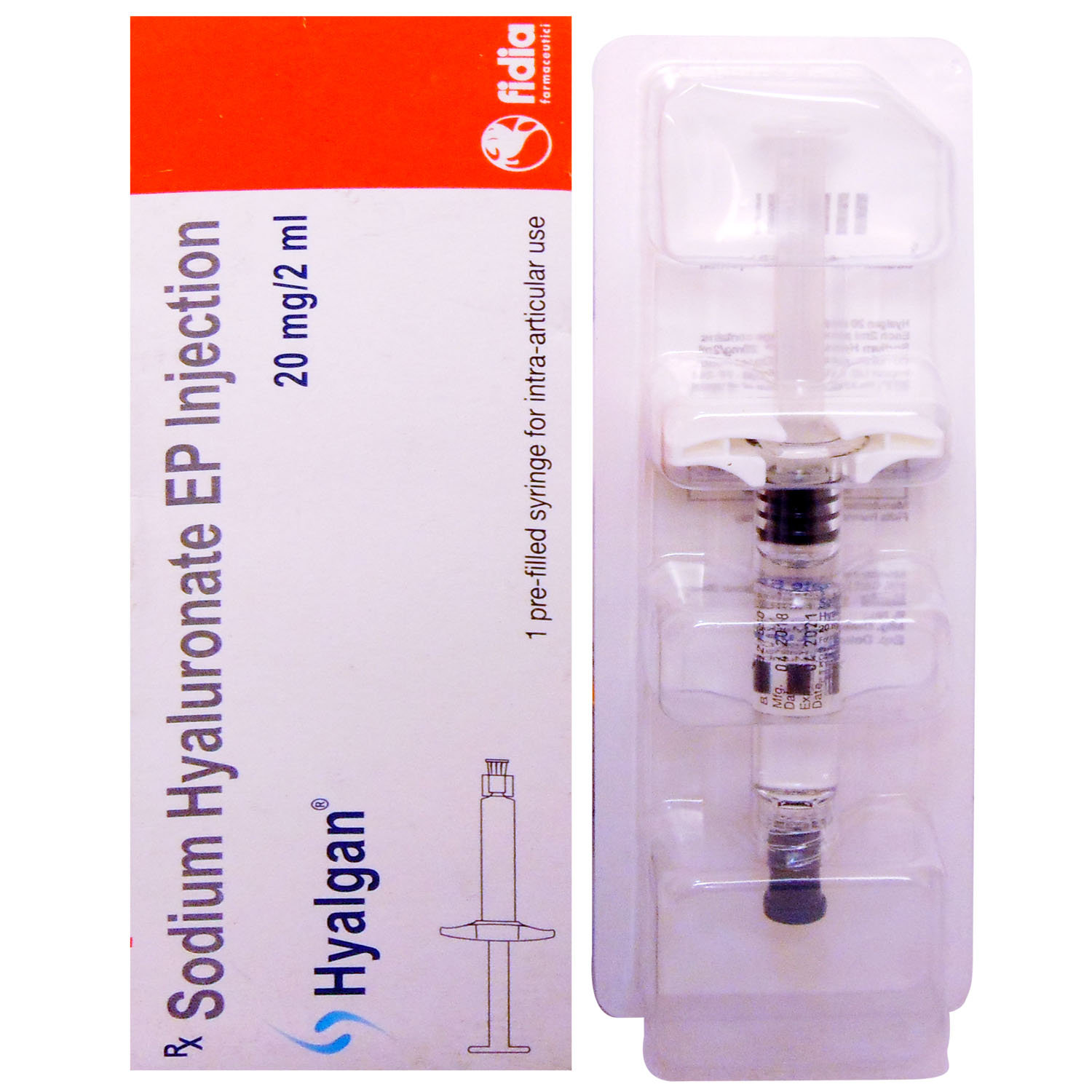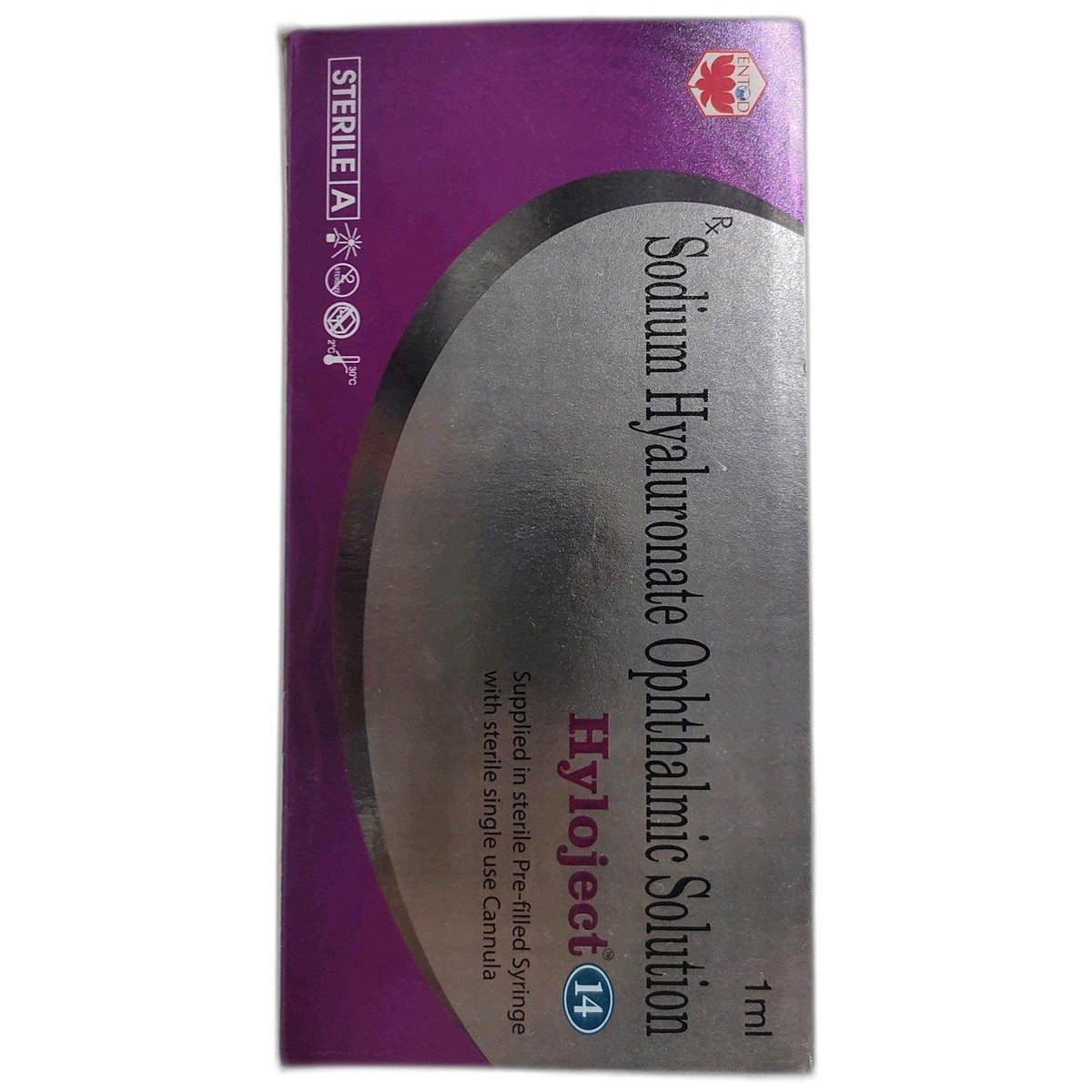Hyaluronic Acid
About Hyaluronic Acid
Hyaluronic Acid is indicated in the treatment of pain in osteoarthritis of the knee in patients who have failed to respond adequately to non-pharmacologic therapy, nonsteroidal anti-inflammatory drugs (NSAIDs), or simple analgesics (pain killers).
Hyaluronic Acid contains 'Hyaluronic acid' that works by reducing friction between the joints. Thereby providing relief from pain.
In some cases, Hyaluronic Acid may cause common side effects such as diarrhoea, headache, loss of appetite, nausea, vomiting, and stomach pain. Most of these side effects do not require medical attention and will resolve gradually over time. However, you are advised to talk to your doctor if you experience these side effects persistently.
Hyaluronic Acid is not recommended for people below 21 years. Consult your doctor if you are pregnant or breastfeeding. The safety and efficacy of Hyaluronic Acid have not been established for use in joints other than the knee. Inform your doctor if you have a joint infection or skin disease in the affected area.
Uses of Hyaluronic Acid
Medicinal Benefits
Hyaluronic Acid is indicated in the treatment of pain in osteoarthritis of the knee in patients who have failed to respond adequately to non-pharmacologic therapy, nonsteroidal anti-inflammatory drugs (NSAIDs), or analgesics (pain killers). Hyaluronic Acid works by reducing friction between the joints. Thereby providing relief from pain.
Directions for Use
Storage
Side Effects of Hyaluronic Acid
- Diarrhoea
- Headache
- Loss of appetite
- Nausea
- Vomiting
- Stomach pain
Drug Warnings
Do not take Hyaluronic Acid if you are allergic to any of its contents, if you have knee joint infections or skin disease in the area of the injection site. Inform your doctor if you have chondrocalcinosis (accumulation of calcium pyrophosphate dihydrate crystals in and around the joints), blood clots, bleeding problems, blood circulation problems, heart, kidney or liver problems. Consult your doctor if you are pregnant or breastfeeding. Hyaluronic Acid is not recommended for people below 21 years.
Drug Interactions
Drug-Drug Interaction: Hyaluronic Acid may interact with disinfectants (cetylpyridinium, benzalkonium chloride).
Drug-Food Interaction: No interactions found.
Drug-Disease Interaction: Inform your doctor if you have skin infections, joint infections, bleeding problems, or blood clot problems.
Drug-Drug Interactions Checker List:
Safety Advice

Alcohol
cautionYou are recommended not to consume alcohol along with Hyaluronic Acid to avoid unpleasant side-effects.

Pregnancy
cautionThe safety and effectiveness of Hyaluronic Acid in pregnant women have not been established. Please consult your doctor.

Breast Feeding
cautionThe safety and effectiveness of Hyaluronic Acid in breastfeeding women have not been established. Please consult your doctor.

Driving
cautionIn some cases, Hyaluronic Acid may cause dizziness and drowsiness. So, drive or operate machinery only if you are alert.

Liver
cautionPlease consult your doctor if you have a liver impairment or any concerns regarding this.

Kidney
cautionPlease consult your doctor if you have kidney impairment or any concerns regarding this.

Children
unsafeHyaluronic Acid is not recommended for people below 21 years of age as the safety and effectiveness have not been established.
Habit Forming
Diet & Lifestyle Advise
- Maintain a healthy weight by performing regular low-strain exercises and eating healthy food.
- Get adequate sleep as resting the muscles can help in reducing inflammation and swelling.
- De-stress yourself by meditating, reading books, taking a warm bubble bath or listening to soothing music.
- Acupuncture, massage and physical therapy may also be helpful.
- Eat food rich in antioxidants such as berries, spinach, kidney beans, dark chocolate, etc.
- Foods containing flavonoids help in reducing inflammation. These include soy, berries, broccoli, grapes and green tea.
- Avoid smoking and alcohol consumption.
Patients Concern
Disease/Condition Glossary
Osteoarthritis: It is a degenerative joint disease in which the two ends of the joints come together due to the breakdown of a protective covering called cartilage. Due to the absence of this protective covering, the joints rub against each other, leading to pain and stiffness. Symptoms of osteoarthritis include pain, stiffness, inflammation and tenderness. The main reason for osteoarthritis is age, the older you are, the more likely you could get osteoarthritis, thus known as degenerative disease, meaning that the joints wear out as a person ages. Other reasons include a past injury such as torn cartilage, dislocated joints and ligament injuries.
FAQs
Hyaluronic Acid works by reducing friction between the joints. Thereby providing relief from pain.
The safety and effectiveness of Hyaluronic Acid in joints other than the knee have not been established. So its use in other joints than the knee should be avoided.
Hyaluronic acid is a natural viscous gel fluid found in the joints of the body. This fluid works as a lubricant and shock absorber for smooth movement. It reduces friction and provides lubrication. When Hyaluronic acid gets reduced, it causes the bone to rub together leading to pain, stiffness, and other symptoms associated with osteoarthritis.
Avoid jogging or high-impact sports such as soccer or tennis. Also, avoid weight-bearing activity or standing for longer than 1 hour at a time. Consult your doctor if you have any concerns.











